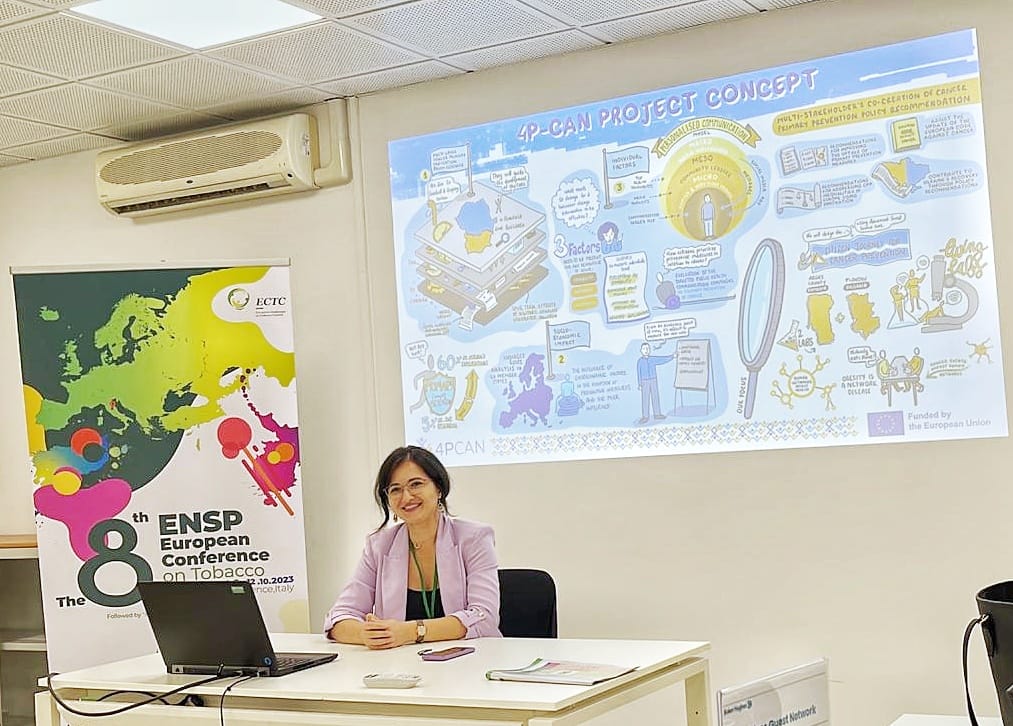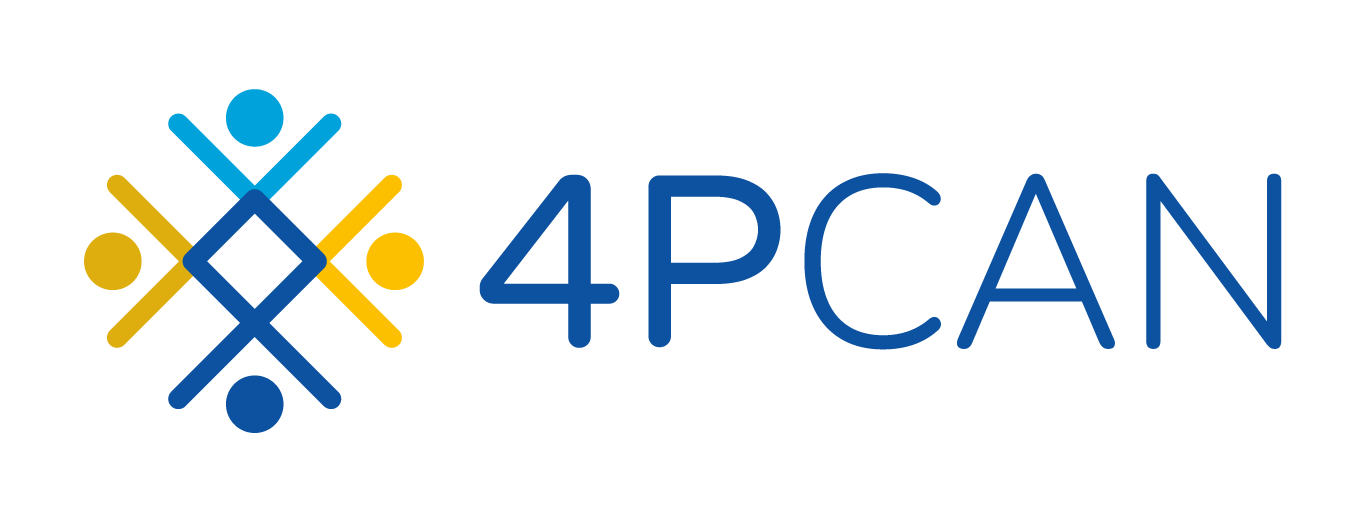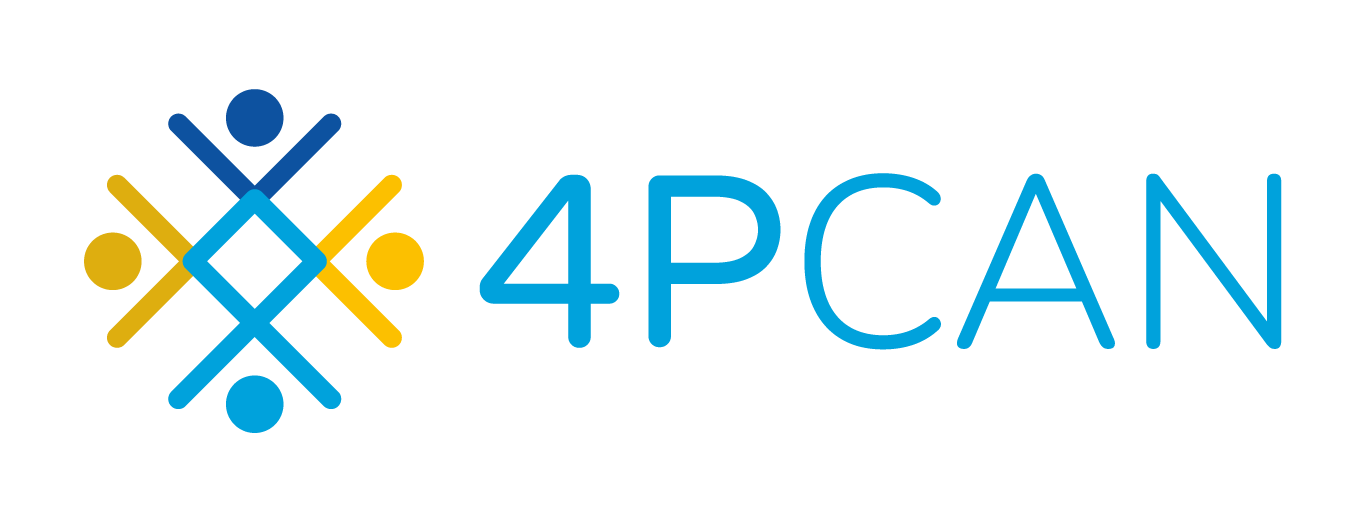
The Learning Centre of Florence played host to an enlightening session dedicated to the 4P-CAN Project during the European Conference on Tobacco Control. Organized by one of 4P-CAN’s project partner and Lead of Work Package 2, ENSP (European Network for Smoking and Tobacco Prevention), the conference drew leading figures from across Europe.
The session was co-chaired by Adriana Boata, a key figure in the Centre for Innovation in Medicine Management Team and Charis Girvalaki, a renowned policy researcher who leads Work Package 2’s work on a multi-level assessment of cancer prevention policies.
Mrs. Boata elucidated the 4P-CAN Project’s concept, underscoring the distinctive consortium composition and the initiative’s goal of pioneering a new citizen engagement model for cancer primary prevention. Also spotlighted was the Romanian Living-lab’s vital work, a significant component of Work Package 5 of the project, that aims to delve into personal networks, comprehending how health habits, both good and bad, can be influenced by individual and community interventions.
Ms. Girvalaki further described the progress in the Work Package she is leading and actively engaged stakeholders in the audience, inviting candid feedback and fostering open discussions. There will be follow-up activities, as the audience responded very well to the project’s aims and ambitions.
The session also featured esteemed speakers like Vlad Nerau from the Academy of Economic Studies in Bucharest, leading Work Package 3’s focus on the socio-economic determinants of cancer prevention. Mr. Nerau presented the societal costs of cancer, highlighting the paradoxical reality: families with smoking members face steeper healthcare costs without commensurate health improvements. Further, he shed light on socio-economic analyses which reveal the Romanian population’s vulnerability when faced with a cancer diagnosis.
The insights on the economic aspects of cancer resonated deeply. He painted a clear picture of the substantial direct and indirect costs, emphasizing the need for robust preventive policies and tailored interventions to modify the current trajectory.
Ms. Ariadna Feliu, a renowned researcher with IARC, stressed how the 4P-CAN project will greatly bolster efforts to ensure the European Code Against Cancer reaches the wider populace. She also highlighted the project’s anticipated contribution to the impending 5th edition of the code.
Closing the session, Mrs. Boata articulated the 4P-CAN project’s overarching ambition: to unravel the intricate nexus encompassing each individual, spotlighting the profound influence of our environment on cancer prevention. She emphasized the project’s potential to navigate the multifaceted challenges of primary cancer prevention. 4P-CAN offers not just a roadmap but also the tools to construct a health-conducive environment, accentuating the invaluable role of peer networks.
Another pivotal takeaway was 4P-CAN’s expansive outreach, involving voices from many non-EU nations, particularly the Balkans. Its alignment with seven out of the thirteen Cancer Mission recommendations underscores its holistic approach, transitioning from academic discourse to tangible, on-ground solutions.
The 4P-CAN project’s contribution to European smoking cessation efforts was also underscored. The collective approach, spanning 17 organizations across 11 countries, fosters a shared learning environment, offering a hopeful path for a smoke-free Europe.

